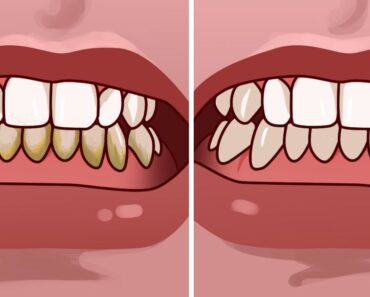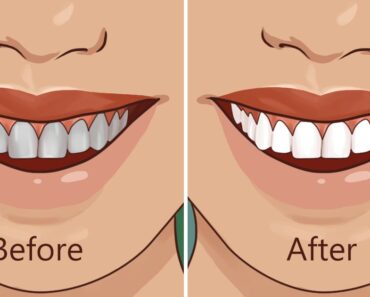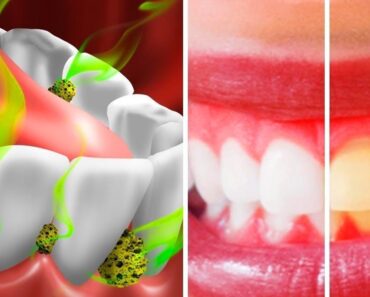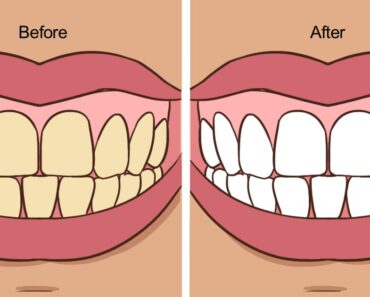
© remedydaily
Sugar has a good taste, as well as everything that has sugar in it has a better taste. Sugar appears to be all around us. Every one of us cannot resist the sweet flavors of our best desserts in times of hunger. However, something that appears like enjoyment is the cause of numerous complex health problems if we take them excessively. Currently, we can hardly avoid sugar; however, lots of us do not even see our sugar addiction.
In this post, we have put together some warning indicators from the body.
The signs show that you have to stay away from sugar.
10. Frequent colds and flu

© depositphotos
Consumption of excess sugar prevents the cells of the immune system from fighting off bacteria in times of sickness. The body’s vitamin C gets used for fighting off the flu is chemically similar to glucose. Rather than find and battle with Vitamin C, the immune system then selects glucose, which has no power against glucose. So, rather than attacking diseases, the immune system becomes a victim of them. So, to avoid this from happening, minimize your sweets consumption if you are prone to getting the flu or cold. Furthermore, take more vegetables and fruits, which have high nutrients and vitamins E and C, in addition to zinc and beta-carotene.
9. Weight gain

© depositphotos
The surprise is never pleasant to discover that you have been adding weight. You had no idea that sugary foods could make you overweight in a matter of weeks. However, among the clear signs of excess sugar intake, is weight addition.
Sweets and snacks end up storing extra pounds in your stomach. An increased sugar level maximizes insulin production, which stores too much fat in the stomach instead of somewhere else.
8. Energy highs and lows

© depositphotos
Glucose caters to the regular supply of energy around the human body; this is the reason it is crucial to maintain your sugar levels. If you deviate from a good standard, you could have a fluctuating level of energy all day. During the consumption of sweets, the pancreas in the body secretes insulin to help in supplying glucose to the cells. The moment that this cycle is complete, you get a feeling of a low level of energy due to your body craving more sugar.
To keep your level of energy stable, do not consume unhealthy and sweet snacks. Instead, choose healthy fats and lean proteins. Get the proper energy to be used by the body by eating healthy foods. This energy balance will lead to an even sugar level in the blood. This will not create energy dips and spikes.
7. Constant skin breakouts

© brightside
Foods that have a high quantity of sugar lead to high levels of insulin and start the glycation process, or the joining of sugar to the protein molecules. The moment that the sugar is inside the human body, it triggers several complex physiological procedures that could eventually lead to skin and inflammation problems. This increase in insulin can last spike oil glands activity in the skin and begin inflammatory processes.
This means that increasingly sugary food can result in a higher possibility of having flare-ups of acne. If your skin begins to disturb you and no medical intervention seems to help, you should try changing what you eat. We do not recommend that you completely abstain from sugar, but you should take in a lesser amount of sugary foods.
6. Muscle and joint pain

© depositphotos
Does it appear that you have not been taking regular walks, golfing, or gardening due to pain in your body? It could be one of the indicators that the body uses as a warning for the internal inflammatory processes happening inside the body. An extreme quantity of sugary food intake causes the immune cells to excrete inflammatory messengers in the blood. These inflammatory messengers try to dissolve end-products of advanced glycation or the glucose molecule, which is protein bound.
The more sugar quantity consumed the appearance of end-products from advanced glycation increases. This increase leads to an increase in the inflammatory messengers sent down to break up the cycle. These types of the deluge of biochemical reactions can probably cause arthritis, heart disease, cataracts, wrinkled skin, or poor memory.
5. Tooth decay

© depositphotos
Foods that are sweet lead to the development of tooth decay and cavities. But sugar does not cause the teeth to become rotten. But instead, the food debris that is left on your teeth after eating. When not correctly brushed or not digested, food debris results in plaque formation on the tooth. Plaque erodes the hard surface of the teeth. This creates tiny holes in the tooth.
Various sugar-containing foods such as breath mints, dry cereal, and candy can become stuck in the teeth, where they can not be reached; this will eventually speed up the decay process. If you keep good oral hygiene, you may save yourself from frequent visits to dentists.
4. A high sugar tolerance

© depositphotos
If you continuously eat sweets daily, your tastes bud become so used to the sweetness that very sugary foods become reasonable to you. Too much sugar makes the taste palate dull. This palate dullness leads to berries and sweet fruits becoming not as sweet as they once were. Believe it or not, enjoying the taste of a juicy apple is the best feeling. If you do not enjoy sweet things, then minimize the consumption of additives of extra sugar, such as sugary syrups and refined sugar, and change over to a well-balanced food regimen.
3. Craving sweets and other sugary foods

© depositphotos
Sugar is often rapidly processed in the body, even though you just recently ate a sugary meal. Sugar secretes dopamine. This event is similar to the feeling you get if you use addictive drugs.
The neurons release the neurotransmitter dopamine when responding to something rewarding. This specific chemical helps keep us in a great mood. The human brain perceives sugar as a type of reward or some treat. The more sugar we consume, the more the body desires it. It is an addictive and vicious cycle. Additionally, any food which contains high amounts of sugar will never satisfy you since it lacks essential nutrients.
2. Feeling bloated

© depositphotos
Bloating plus painful gas, in addition to various digestive discomforts, are a result of various foods. Consuming excess sugar is among these! This is because bloating is connected directly to whatever is consumed and digested. Also, sugar is a big part of this. When sugar gets poorly absorbed by the small intestine, then it will get into the large intestine, whereby sugar behaves like a bacteria that produces gas.
Excess sugar is dangerous to the stomach; therefore, you should avoid consuming Diet Coke, snack bars, and sweeteners. It is vital to know that foods without sugar do not contain sugar alcohol. These alcohols contain an indigestible compound that has a sweet taste.
How much sugar is too much?

© depositphotos
Based on a report from the WHO, your typical sugar dose recommendation should be lower than 10% of your daily consumption of energy. This 10% daily consumption is equal to 7 tablespoons of sugar. No doubt, we all love sugar because it tastes very sweet, but when we consume it in excess, there could be numerous detrimental consequences. About 4 grams of carbohydrates equals one tablespoon of sugar in the body. Try to pay attention to some of the signs mentioned earlier and minimize your daily sugar intake if your body needs sugar, natural food products such as cereal, nuts, vegetables, and fruits.
Do you think having a sweet tooth is worth it? Share your opinion in the comments!






